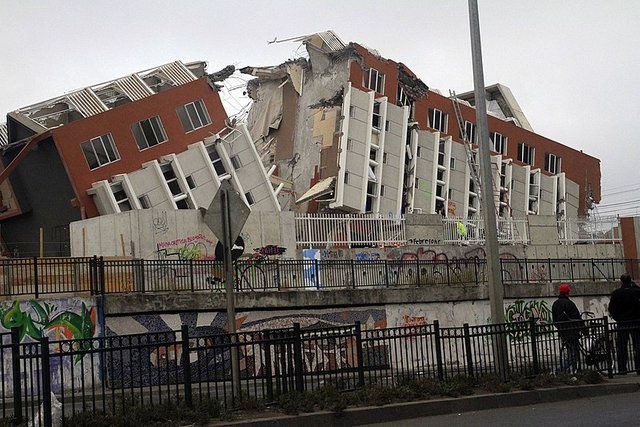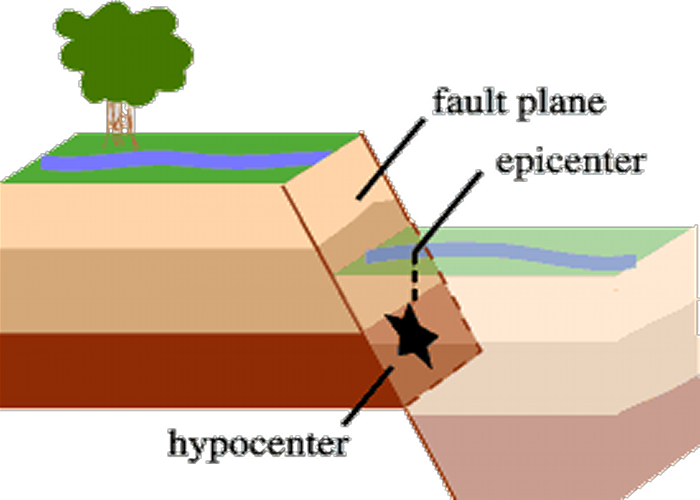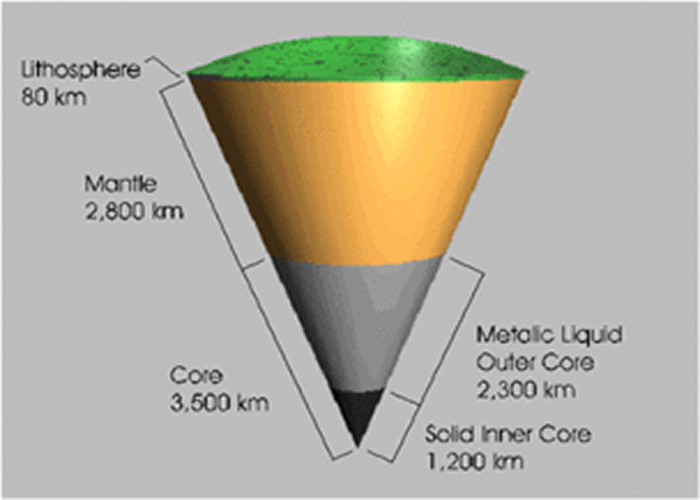Earthquake, Man's Nightmare That Cannot Be Curbed: What Is It And How Can We Best Live With it? (Part 1)
You are happily walking down the street with plans of how you intend to achieve greater successes and live life to the fullest. And without prior warning or sign, the ground starts to shake with deafening sound. Buildings, Telecom radio masts and towers, just all elevated edifices start to rain down around you. Cars getting crushed by rubbles, people running helter-skelter with some also getting crushed by building rubbles raining down. Dreams and plans are being shattered. Families are being wiped off before your very eyes. It appears as though the world is coming to an end!

[Source: Wikimedia commons. Author: Claudio Núñez. CC BY-SA 2.0 licensed]
Alas! It is an earthquake and regrettably, there is absolutely nothing anyone can do to arrest a natural disaster such as this. It is one of the inevitable consequences of living in this sophisticated puzzle called earth which is always under the constant influence of both noticeable and unnoticeable forces of nature. So what is an earthquake?
To put it concisely, we say that...
An earthquake (also known as a quake, tremor or temblor) is the shaking of the surface of the Earth, resulting from the sudden release of energy in the Earth's lithosphere that creates seismic waves. Earthquakes can range in size from those that are so weak that they cannot be felt to those violent enough to toss people around and destroy whole cities. | Source
Of course, we cannot prevent earthquakes from taking place, but we can, however, learn to predict it by monitoring changes in the ground beneath our feet and either evacuate the area or better prepare ourselves to face the challenges one could bring. We can design our buildings to better absorb the shocks with minimal or no collapse scenarios in the event of an earthquake. Good as that may sound, it is important we know what causes an earthquake. How do earthquakes occur? How are they measured? Why does earth shake when an earthquake occurs? And in what ways can we prepare ourselves to better live with them? Let's find out these and many more in this article.
How earthquakes happen and the reason ground (earth) shakes when major earthquakes happen

[Image released to Public Domain by US Department of Interior. Copyright info here]
Naturally, as has been noted in the above quoted definition of earthquake, earthquakes occur whenever two tectonic plates slip past one another along a fault. It starts at a point inside the earth known as the focus or hypocentre, then travels through the ground as seismic waves of very low frequency sounds and causes greatest damage at a point that's directly above the focus known as epicenterref.
To really understand how an earthquake occurs, we need to consider the four layers that earth is made of; namely the inner core, outer core, mantle and crust. A thin skin covering the surface of the earth is formed by the crust together with the outermost part of the mantle. But the layers making up this thin skin are not one lump solid body as the inner part of the mantle side of it is made up of many pieces of rocky slabs that are always in constant slow motion, gliding and sliding past one another and occasionally bumping into each other on molten metallic core beneathref.

[Image released to Public Domain by US Department of Interior. Copyright info here]
These rocky slabs are called tectonic plates while their edges are known as the plate boundaries which are characterized by irregularities, unevenness and general asperities as well as many faultsref. Most earthquakes are known to occur around these faults.
Now, because the plate boundaries are not smooth, when two tectonic plates rub against each order, they don't just slide smoothly past each other because of the friction created by the rough boundaries. Instead, they get hooked, and stuck together and so stop moving while other parts of the plates keep moving in a very slow motion and thus building up pressure along the motionless rough boundaries. After some time, owing to pressure buildup, the plates break, triggering off an earthquake during which the plate boundaries start moving and will continue to move until they get stuck againref.
We have been able to introduce the topic of this two-or-three-part article, and have robustly discussed earthquakes and how they happen in this Part 1. And we can see that the length of the article is already getting longer and longer which will definitely make it very boring to read. And I don't want that. I like to keep my articles within readable limit for easy comprehension of the themes and interactive learning. So we have to stop here to continue in Part 2 where we will talk about the reason ground (earth) shakes when there is a major earthquake, how earthquakes are measured and the best approaches with which we can live with this inevitable natural phenomenon. Thanks for reading.
References
Truly yours,
@sciencetech
STEM contributor
Hello there @sciencetech :)
What a nice, straight-forward article you shared with us here today :)
I became highly interested in earthquakes from the moment I lived through one - back in 2010 in Chile. It was the most surreal experience I had ever had! Until, another one struck the country in 2015. So, your description of how things unfold (at the beginning of your article) is very accurate!
I am looking forward to part 2 :)
All the best to you.
@abigail-dantes
I can imagine how bad you must have felt witnessing that for the first time in your life. I am happy you are alive today to tel the story.
Thanks you @abigail-dantes. You have given me hope by checking out my article and curating it as well. We, new steemians and are having hardtime getting visits and curation. This is why @steemstem community Is different.
Thanks
@sciencetech
STEM contributor
I don't want to imagine the experience you had
I have only seen the stuff on movies and it is scary
Indeed 😅
This post has been voted on by the steemstem curation team and voting trail.
There is more to SteemSTEM than just writing posts, check here for some more tips on being a community member. You can also join our discord here to get to know the rest of the community!
Earthquake remain on of the fierce natural disaster. I had a conversation with a colleague who believe it can be averted. Well at least not for now as far as I know.
Succinct article you have presented.
Thanks bro. Your colleague is wrong however. Very wrong at that. Appreciate your visit.
@sciencetech
Well, I can't blame him, he is a philosopher. Perhaps someday we might be able to avert it
Hi @sciencetech!
Your post was upvoted by utopian.io in cooperation with steemstem - supporting knowledge, innovation and technological advancement on the Steem Blockchain.
Contribute to Open Source with utopian.io
Learn how to contribute on our website and join the new open source economy.
Want to chat? Join the Utopian Community on Discord https://discord.gg/h52nFrV
Yo man
Is there any reason some part of the world dont experience it or mayb some are just covered by the grace of God or there is something they are doing that is making it not happen
Not anything. There is some fractions of earthquake happening everywhere on earth but they are minor and therefore unnoticeable. Any quake measuring less than 3 is a minor one.
No place is immune to earthquake. The reason some places experience more quakes than others is because they don't lie along quake belts known as fault planes. Any region lying along faultlines is highly susceptible to earthquakes.
Thanks for visiting
@sciencetech
STEM contributor
Thanks for that bruv
Now I know